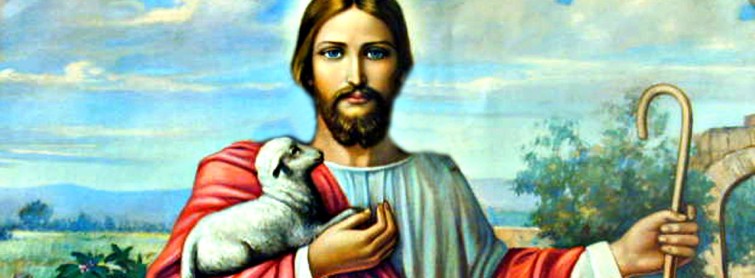“Nothing will benefit human health and increase chances for survival of life on Earth as much as the evolution to a vegetarian diet.”
– Albert Einstein
These words from the patriarch of modern science himself, remind us that life was not ideally built for meat eating.
The Original Design
While a vegetarian diet is not a popular practice in the Western world and in modern Christian thought, the case for a vegetarian diet finds support in scripture. The first biblical writings are quite clear that meat was never part of the original design, with Genesis 1 depicting God’s creation of Adam and Eve, and then God providing them with plant life to sustain their diet:
“Then God said, “Behold, I have given you every plant yielding seed that is on the surface of all the earth, and every tree which has fruit yielding seed; it shall be food for you; and to every beast of the earth and to every bird of the sky and to everything that moves on the earth which has life, I have given every green plant for food”; and it was so.”
The newly created order offered ample resources for man and woman to freely consume plant life as part of the original design. Though some argue that this does not prove that humanity was only allowed to eat meat, the text certainly implies it. This, together with the introduction of death in Genesis 3 suggests that a meat based diet would not have been possible when God laid down the vegetarian mandate, as death did not exist for either humans, or animals up until the time of the fall.
In Genesis 3, sin entered the world, as did death, as a result. Because God’s original design was so intrinsically ruptured, the death and carnivory that was absent from the paradisal existence of Eden was suddenly introduced into the world. Consequentially, animals began to eat each other, and in Genesis 9 God allows meat eating among humans, to take place:
“Every moving thing that lives shall be meat for you; even as the green herb have I given you all things.”
(To read more about the original design for a vegetarian life, check out Were Adam and Eve Vegetarians? The Biblical Basis for a Vegetarian Life.)
PETA
The Prominent animal activist group ‘PETA’ (People for the Ethical Treatment of Animals) has recently made claims that the only acceptable diet is vegetarianism. Of course, this is not new, but what is new, is that they claim that the biblical depiction of Jesus demands vegetarianism, because Jesus was a vegetarian. The PETA website states the following:
“Many biblical scholars believe that Jesus was a vegetarian. Jesus’ message is one of love and compassion, and there is nothing loving or compassionate about factory farms and slaughterhouses, where billions of animals live miserable lives and die violent, bloody deaths. Jesus mandates kindness, mercy, compassion, and love for all God’s creation. He would be appalled by the suffering that we inflict on animals just to indulge our acquired taste for their flesh.
We all have a choice. When we sit down to eat, we can add to the level of violence, misery, and death in the world, or we can respect God’s creation with a vegetarian diet.”
PETA’s argument is that if we are to live out of the gospel of such a compassionate Christ, then we must question the morality of the animal slaughter markets that we are buying into, and sustaining by giving them our business.
Christianity
Throughout history, other religious traditions such as Hinduism have already adopted a meatless diet, yet Christianity has varied in its commitment throughout history, to compassion for God’s creation.
Prior to the Middle Ages, Christian vegetarianism was quite common, and was practised among several prominent monastic orders. Early church writings seem to indicate that meat eating was not a common practice up until around the 4th century when the Emperor Constantine came into power and meat eating became the official mandate for the Roman Empire. Early church fathers such as St. Basil, Tertullian, Origen and Clement of Alexandria were all committed vegetarians who wrote about their convictions in great detail.
In modern times, major Christian leaders such as John Wesley also adopted a vegetarian diet and many Christian scholars of our time have come to conclude that a vegetarian diet appears to be more consistent with the content of creation scripture and of Christ’s teachings.
However, over time, Christianity has moved away from the vegetarian diet in favor of accepting a more Western way of living and eating in a way that conforms to popular culture. Recently however, there has been a shift amongst modern Christians, and a revival of sorts has begun to take place as more and more Christians perceive a vegetarian diet to be in keeping with the gospel message, and as relieving modern world problems such as hunger, obesity and poor health.
Jesus
The issue of whether or not Jesus was a vegetarian is ambiguous, but what is clear is that Jesus was at least ‘some sort’ of meat eater.
Luke records Jesus as eating fish,
“They gave him a piece of broiled fish, and he took it and ate it in their presence.” (24:42-43)
Jesus was also seen feeding the hungry crowds fish in Matthew (14) and is described twice, as having helped his disciples to catch such a large amount of fish that their nets almost broke.
Jesus can also be seen in the Gospel of Luke, eating a Passover meal which may have included lamb;
“Jesus sent Peter and John, saying, “Go and make preparations for us to eat the Passover.” (22:8)
Since Jesus was born into a culture of Jewish law, he not only participated in the Passover meal, but specifically instructed his disciples to prepare one for them to share. We also know from Luke 2:41 that Jesus had engaged in a Passover meal each year as a child. Scripture is not clear on whether this meal included lamb but in light of the historical and religious context of Passover it is certainly likely, though it is curious that there is no mention of his partaking in any red meat.
It is, however, undeniable that Jesus ate fish. Arguing for the ovo-lacto vegetarianism of Jesus, from a scriptural point of view, is futile. However, this is not to say that Jesus did not practice pescatarianism (a vegetarian diet that includes fish), and the textual evidence for such an argument is quite convincing. Though there are multiple references to Jesus eating, catching and using fish to feed others, references to Jesus eating or condoning the eating of red meat are completely absent. If Jesus ate meat, the New Testament is completely silent about it.
Whether or not Jesus himself was a vegetarian, 4th century theologian Hieronymous certainly understood Jesus as being a more than adequate basis for adopting a vegetarian diet:
“The consumption of animal flesh was unknown up until the great flood. But since the great flood, we have had animal flesh stuffed into our mouths. Jesus, the Christ, who appeared when the time was fulfilled, again joined the end to the beginning, so that we are now no longer allowed to eat animal flesh.”
Eating a vegetarian diet might not be something we should do in order to mimic Jesus’ actions, but it is certainly a lifestyle that is in keeping with the wider message that Jesus brought, and with the atonement work that He set down .
In order for Christians to live out of the gospel, and out of Jesus’ message of compassion, Christians must treat animals with kindness, and must remain committed to the Biblical stewardship that was mandated in Genesis. While we know that humans were permitted to eat animals after the flood, to cause suffering to an animal or to kill when there is no legitimate need is contrary to Jesus’ message of love and benevolence, and goes against God’s original design.
Meat-eating is not a sin, but it is reasonable to conclude that it should only be done so within the wider framework of Jesus and the gospel message. Meat eating needs to be undertaken with empathy and confronted with grace, and should not be undertaken as an act of violence, or out of greed or extravagance. Despite the general acceptance within the Western world toward a meat heavy diet, Christians must address the issue of animal welfare within the wider context of the Christian message.
People can eat meat without doing so irresponsibly. We must transform our diets to reflect the humility and compassion of Christ, and of the gospel.
Should We Be Vegetarian?
Whether or not a Christian is a vegetarian comes down to personal choice. While there is compelling evidence that meat eating was not a part of the original design, and while the gospel is silent on the issue of Jesus eating red meat, the Bible is not black and white on the issue.
While Genesis 1 states that humanity was not originally designed to eat meat, Genesis 9 states that it is permissible. Jewish law in Leviticus then lays down further mandates regarding the eating of meat before Jesus eventually declares all foods as ‘clean’ (Mark 7).
The bible does not command meat eating so there is certainly nothing wrong with abstaining from meat. What it does command is that we should not force our dietary convictions on each other:
“ The one who eats everything must not treat with contempt the one who does not, and the one who does not eat everything must not judge the one who does, for God has accepted them.”
-Romans 14:3
Whether or not you choose to eat meat should be a well thought out, and well prayed over, decision. Ultimately, it is between you and God. And remember…
“…whether you eat or drink or whatever you do, do it all for the glory of God.”
-Corinthians 10:31
To make the first step toward caring for your God’s creation, be sure to sign our petition to establish Creation Day as an official holiday!
PETA Quotation Source: http://www.peta.org/about-peta/faq/was-jesus-really-a-vegetarian/

